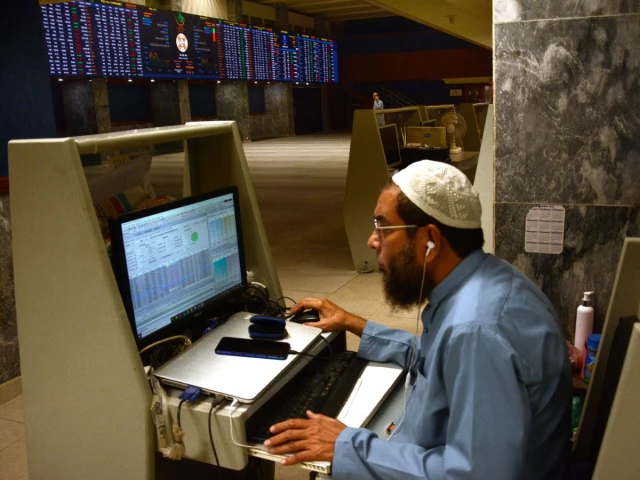Business
GST cuts ignite car sales boom! Automakers plan to ramp up output by 40%; aim to boost supply, cut wait times – The Times of India

India’s top car makers Maruti Suzuki, Hyundai Motor India and Tata Motors, are gearing up to expand production by 20–40% in the coming months. The ramp up comes after a sharp revival in vehicle demand following the recent Goods and Services Tax (GST) cuts. Maruti Suzuki, the country’s largest carmaker, plans to produce over 200,000 vehicles in November, compared with an average of 172,000 units a month till September, according to people familiar with the company’s plans. The production push will mark a record for the month, which typically sees manufacturers scale back dispatches after the festive season rush, as per an ET report.
Tata Motors has instructed its suppliers to prepare for output of 65,000–70,000 vehicles every month, a notable rise from an average of 47,000 units produced in the first half of the fiscal year. Meanwhile, Hyundai Motor India has started operating two shifts at its second plant in Talegaon, Maharashtra, increasing capacity by up to 20%. Passenger vehicle sales in India hit a record 557,373 units in October, driven by festive-season demand and post-GST price benefits that have depleted dealership stocks. Maruti Suzuki’s retail sales alone jumped 20% to 242,096 units last month. Partho Banerjee, senior executive officer for marketing and sales at Maruti Suzuki, said the company began November with 104,000 vehicles in stock, enough to last 19 days, and 350,000 pending orders. “Our production teams are working overtime, even on a few Sundays, to maximise supplies and reduce wait time,” Banerjee said. Tarun Garg, chief operating officer at Hyundai Motor India, said the GST cuts had a significant impact on sales. “We (at Hyundai) were constrained by capacity (earlier). But now with the Pune plant coming in, we should see an upside (in production) by 20%,” he told ET, adding that the company plans to strengthen its presence through new products and additional capacity. Tata Motors is equally upbeat. The festive season has “brought strong momentum to our retail performance, supported by healthy network stock levels and the positive impact of GST benefits,” said Amit Kamat, chief commercial officer, Tata Motors Passenger Vehicles. He added that the company expects growth to continue in the second half of the fiscal year, supported by a strong order book and upcoming launches. Maruti Suzuki also expects steady growth in the coming months. In its recent post-earnings call, the automaker said it anticipates a 6% rise in industry sales in the second half of FY26, after a 1% decline in the first half. According to S&P Global Mobility, which tracks vehicle production and sales on a calendar-year basis, India’s car market outlook for 2025 remains stable despite temporary disruptions caused by the timing of the GST rate cut. The firm expects the recent demand surge to offset earlier slowdowns and extend into next year. Gaurav Vangaal, associate director for light vehicles in the India subcontinent at S&P Global Mobility, told ET, that before the tax cuts, vehicle production was expected to rise 1–2% in 2026. “We now feel this would be much higher at 6–7%.” In the first six months of this fiscal year, production of cars, sedans and utility vehicles in India rose 3.8% to 2.57 million units, while exports increased 18% to 445,884 units, according to data from the Society of Indian Automobile Manufacturers (SIAM). Domestic wholesales, however, dipped 1.4%. SIAM is yet to release wholesale and production data for October.
Business
Strategic sovereignty a guiding imperative in reshaping global economy, say CEOs – The Times of India

NEW DELHI: In a rapidly reshaping global economy, strategic sovereignty has emerged as a guiding imperative, as nations navigate global supply chains while safeguarding critical capabilities in an increasingly fragmented world, global business leaders said. During a panel discussion, KPMG India CEO Yezdi Nagporewalla, global leaders across new age economy, technology and defence, financial inclusion, and consumer sectors, discussed the challenges and opportunities of operating in a fragmented global economy.Highlighting the core of strategic sovereignty in a world of global supply chains, General Atomics Global Corporation CEO Vivek Lall, chief executive of, said, “It is about reducing vulnerability to geopolitical choke points, whether in energy, technology, manufacturing, logistics, or data. Strengthening domestic capabilities while building trusted international partnerships is critical, and it is equally important to develop resilience against any potential choke points. As the global community moves forward, the underlying theme is going to be human resource training and human resource knowledge, capabilities. This is often underemphasized, but at the root of strategic sovereignty is a strong focus on human resource development.”Talking about how strategic sovereignty is reshaping the flow of global capital, Kishore Moorjani CEO – Alternatives, Private Funds CapitaLand Investment said, “Perhaps there’s no better place to see that in action than in India. When the country began liberalising over 30 years ago, it was hungry for capital and attracted significant foreign institutional investment. While FII capital is important, it can be fickle. Today, the situation has reversed: capital is chasing India… We respect the sovereignty of the markets we operate in and align our investments accordingly. We come to build India, not just trade.”Discussing the role of financial institutions in building national resilience, Mary Ellen Iskenderian, president & CEO of Women’s World Banking, said, “True economic resilience depends on inclusive access to savings, credit, insurance, and digital payments. Financial inclusion strengthens households and communities, particularly in the face of climate shocks and economic volatility, reinforcing national stability from the ground up.”On the question of how consumer brands maintain core identity while navigating local cultures, regulations, and consumer expectations, Mike Jatania, CEO and chairman The Body Shop & co-founder of Aurea, said: “For brands operating across borders, maintaining identity while respecting national priorities is essential. If your brand has a clear purpose and core values, it can adapt locally without losing its identity. Purpose, transparency, and trust are economic currency.”
Business
PSX sheds 2.5% on weak earnings, Reko Diq | The Express Tribune

KARACHI:
Pakistan’s stock market remained under heavy pressure during the week ended February 13 as the benchmark KSE-100 index plunged 4,526 points, or 2.46% week-on-week, to close at 179,604 amid heightened volatility, weak corporate earnings, and investor concerns surrounding developments related to the Reko Diq mining project.
Market sentiment remained fragile due to persistent selling across major sectors, while analysts also linked the downturn to rising political and security tensions, which weighed on risk appetite and triggered cautious trading activity throughout the week.
On a day-on-day basis, the Pakistan Stock Exchange (PSX) started the week with a big loss, when the KSE-100 dived 1,789 points (-0.97%) to settle at 182,340. On Tuesday, the bourse experienced a consolidation phase as the index closed at 182,154, down 187 points (-0.10%).
However, the market staged a rebound from its intra-day low near 182,000 on Wednesday, settling at 183,049, up 896 points in a largely range-bound session. The second last day of the week witnessed a negative session, which erased 2,537 points (-1.39%) and closed at 180,513. The PSX extended its losses on Friday, with the KSE-100 declining by 909 points (-0.50%) at 179,604, breaching the key psychological support level of 180,000.
Arif Habib Limited (AHL), in its weekly commentary, noted that the KSE-100 remained bearish throughout the week, losing 4,526 points (-2.46% WoW) and ending at 179,604. The bearish trend was observed due to selling pressure, some lower-than-expected corporate results and high volatility stemming from concerns related to Reko Diq. During the week, Moody’s revised Pakistan’s banking system outlook from positive to stable, which indicated that while macroeconomic indicators had shown improvement, the recovery in the operating environment continued to be gradual.
Moreover, remittances from overseas Pakistanis increased by 15% year-on-year to $3.5 billion during January 2026 compared to $3 billion in January 2025. On a month-on-month basis, remittances decreased by 4%. Auto sales increased to 23.1k units, up by 74% MoM in Jan’26, while on a YoY basis, it rose by 35%.
In the MSCI Index review for Feb’26, Abbott Laboratories was deleted from the MSCI FM Standard Pakistan Index, while Security Papers and Zarea Ltd were included, and Lalpir Power was deleted from the MSCI Small Cap Index, AHL said.
Gas production was down by 7.8% WoW to 2,798 million cubic feet per day, while oil production fell significantly by 11.7% WoW to 59,121 barrels per day during the first week of Feb’26. The central government debt rose by 1.3% MoM to Rs78.5 trillion (+9.6% YoY) as of Dec’25 compared with Rs71.6 trillion in Dec’24. Meanwhile, the State Bank-held reserves increased by $20.6 million to $16.18 billion, with import cover now standing at 2.53 months, AHL added.
Wadee Zaman of JS Global said the KSE-100 index remained under pressure during the week, declining 4,526 points (-2.5%) WoW amid cautious investor sentiment driven by rising political tensions and security concerns in Balochistan, creating uncertainty around the Reko Diq mining project.
On the macro front, an IMF mission is expected later this month to start discussions for the third review under the $7 billion Extended Fund Facility. Pakistan has met three out of five major conditions so far.
Remittances for Jan’26 stood at $3.46 billion, up 15.4% YoY, taking 7MFY26 inflows to $23.2 billion, up 11% YoY. In the MSCI review, Pakistan saw two additions and two deletions across the Frontier Market and Small Cap indices, effective February 27.
On the fiscal side, PSDP spending reached Rs273 billion in 7MFY26, reflecting only 27% utilisation out of the FY26 allocation of Rs1 trillion, while the Finance Division reported a primary surplus of Rs4.1 trillion in 1HFY26, equivalent to 3.2% of GDP.
On the sectoral front, Moody’s revised Pakistan’s banking sector outlook to stable from positive, citing a gradual recovery. Meanwhile, four-wheeler auto sales surged 38% YoY to 23k units in Jan’26, marking a 43-month high and taking 7MFY26 growth to 43% YoY.
Business
Court orders action against E&P firms for law violation | The Express Tribune

ISLAMABAD:
The Islamabad High Court (IHC) has directed the Petroleum Division and the Directorate General of Petroleum Concessions (DGPC) to immediately proceed under law against two exploration and production (E&P) companies over unauthorised change in effective control. This violation may lead to the revocation of petroleum rights.
Parliamentary Secretary for Energy (Petroleum Division) Mian Khan Bugti informed the National Assembly on Thursday that the DGPC had launched regulatory proceedings against three E&P companies over alleged violation of petroleum rules. During the question hour, he said the DGPC issued a show-cause notice on July 18, 2025 to Jura Energy Corporation, Frontier Holdings and Spud Energy. In a latest development, the IHC issued a decisive order, directing the Ministry of Energy (Petroleum Division) and the DGPC to take enforcement action against Frontier Holdings and Spud Energy, following allegations of unauthorised transfer of effective corporate control in violation of Pakistan’s petroleum rules.
The court order, issued in response to a writ petition, has effectively removed any room for regulatory delay by instructing the authorities to take the show-cause proceedings to legal conclusion “expeditiously” and strictly in accordance with the law. The matter relates to a transaction executed in early 2025, through which Jura Energy allegedly transferred effective control of its corporate group – comprising Frontier Holdings and Spud Energy – to IDL Investments via an offshore arrangement, without obtaining prior approval from the government of Pakistan.
Under Pakistan’s petroleum regulatory framework, any disposition of share capital or ownership arrangement leading to a change in effective control – whether directly at the operating company level or indirectly through parent companies – requires prior government consent. In this case, such consent was never sought. Following complaints and regulatory correspondence, the DGPC issued a show-cause notice dated July 18, 2025 under Rules 68(d) and 69(d), which empower the government to revoke petroleum rights in cases of non-compliance, including unauthorised changes in ownership or control.
However, despite the notice, the enforcement action reportedly stalled, raising questions over regulatory hesitation in a strategically sensitive sector. This delay forced the matter into litigation, prompting petitioners to seek intervention from the IHC to compel the state to act. During court proceedings, the DGPC submitted a reply that proved central to the case, as it did not dispute the legal breach. Instead, the regulator reaffirmed that petroleum right holders were under a strict statutory and contractual obligation to comply with the Petroleum Exploration & Production Policy 2012 and relevant petroleum rules. The DGPC stated in its submission that any transfer or change in ownership or control could only be undertaken with prior approval of the government, acting through the DGPC, emphasising that the safeguard exists to protect Pakistan’s sovereign, fiscal and regulatory interests. More importantly, the DGPC acknowledged that breach of the mandatory requirement may render the petroleum right liable to action under the rules.
-

 Entertainment1 week ago
Entertainment1 week agoHow a factory error in China created a viral “crying horse” Lunar New Year trend
-

 Business5 days ago
Business5 days agoAye Finance IPO Day 2: GMP Remains Zero; Apply Or Not? Check Price, GMP, Financials, Recommendations
-

 Tech1 week ago
Tech1 week agoNew York Is the Latest State to Consider a Data Center Pause
-

 Fashion5 days ago
Fashion5 days agoComment: Tariffs, capacity and timing reshape sourcing decisions
-

 Tech1 week ago
Tech1 week agoNordProtect Makes ID Theft Protection a Little Easier—if You Trust That It Works
-

 Tech1 week ago
Tech1 week agoPrivate LTE/5G networks reached 6,500 deployments in 2025 | Computer Weekly
-

 Business1 week ago
Business1 week agoStock market today: Here are the top gainers and losers on NSE, BSE on February 6 – check list – The Times of India
-

 Business1 week ago
Business1 week agoMandelson’s lobbying firm cuts all ties with disgraced peer amid Epstein fallout











